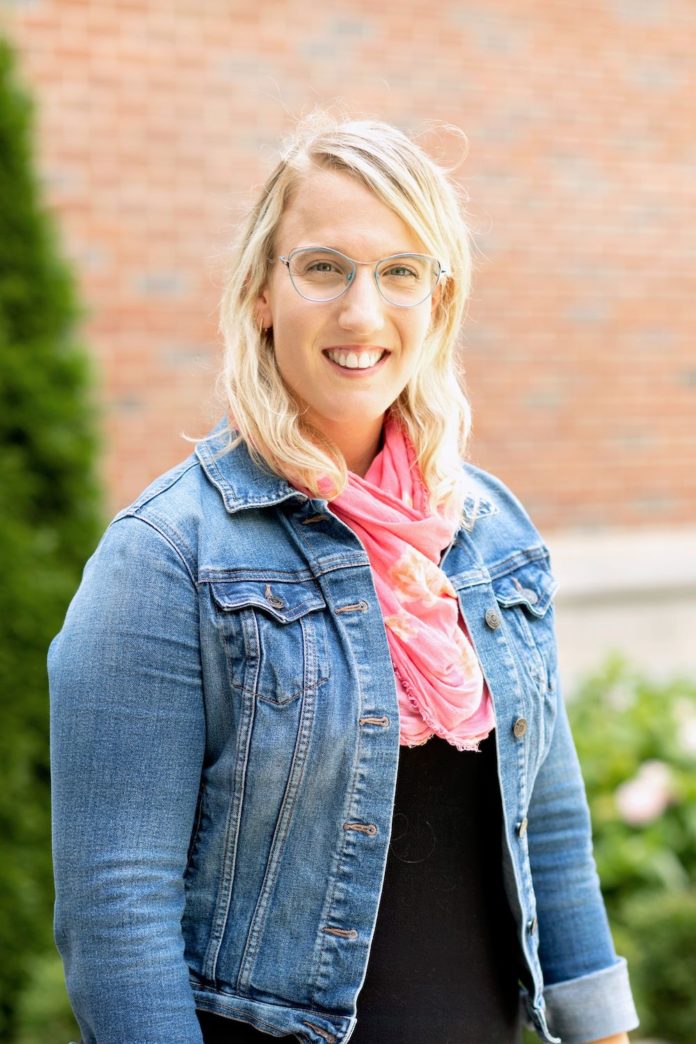COOKEVILLE – Olivia Hendricks graduated from Tennessee Tech University in May 2018 with two bachelor’s degrees, one in English professional technical communication, and another in foreign language with a focus in German. Four years later she is headed to Germany as a Fulbright Scholar.
Established in 1946, just after World War II, the purpose of the Fulbright Program is to establish, encourage and maintain international understanding and goodwill through cultural and educational exchange. Out of the thousands who applied, Hendricks was one of 140 who won this particular scholarship.
“It is one of the most prestigious awards that a U.S. citizen can receive,” Debbie Barnard, Tech’s Fulbright advisor and foreign languages associate professor, said. “Tech has had seven grantees since 2008.”
Hendricks, a Cookeville native, applied for the Fulbright Scholarship her senior year, but was not chosen. She then went to work in the less-than-truckload division as a schedule coordinator at Averitt Express. She said she was thankful she had not won it in 2018, that now she feels more prepared and knowledgeable.
“But then last year, I was thinking that I want to go for it one more time, and I was selected this time. Part of the reason I was selected was because I have experience at a logistics and trucking company,” Hendrick said. “I’m actually being placed at a vocational school for logistics.”
She said now that she has the four years of experience working at Averitt Express and getting the true hands-on experience, she feels more confident and comfortable in her role.
“I’m excited, but mostly, I’m honored,” Hendricks said. “This is like the biggest thing I’ve done in my life and the most independent thing I’ve done.”
The program offers two basic types of grants available to U.S. students, the Fulbright Full Grant and the English Teaching Assistantship. The full grant provides funding for students to complete a research project while they’re in the country; the ETA allows grantees to teach English in public schools and universities. Grant lengths vary, based on the award, but the standard for an ETA, the grant Hendricks has, is about 10 months, with the option for renewal.
“I am also a cultural ambassador for the United States. There are about 250 Americans going to Germany and about 250 Germans coming into the US,” Hendricks said. “So, this is a cultural exchange program, and actually this year is the Fulbright 70th year between the U.S. and Germany.”
Hendricks will be an English teaching assistant at the vocational school and while she does not know the size of her class, she said the ages will range from 16- to 20-year-olds approximately. She will have a mentor teacher or two who are her main points of contact that she will be teaching alongside.
She will be responsible for helping to teach 12 classes a week, which will be 12-15 hours a week. The Fulbright committee encourages its recipients to be engaged in the community outside of the school. She is considering forming an English-speaking club, or perhaps a wrestling club. Hendricks was the first female wrestling state champion from Cookeville High School in 2011.
“I’m going to be in Hamburg, Germany, which is in the northern part of the country and it’s on a harbor,” Hendricks said. “It’s a port city, so, it’s going to be about shipping, a steady stream of rolling trucks, and cargo ships.”
Hendricks will travel to Germany in August to get settled in before her job starts in September.
She will be living in a Wohngemeinschaft, “WG” for short, or shared flat. The German American Fulbright Commission provided her with resources, but she was responsible for finding her own accommodations, which she did on Zoom calls. She will have three roommates, two are students at a university and one is a young professional, who works full time, and they are all native Germans.
“I have found out they do not speak that much English, which is fine,” Hendricks said. “So, I will help them, and my German will hopefully significantly improve.”
Hendricks speaks three languages and has traveled to 20 different countries in the past 10 years. She did an internship in Germany in 2016 where she worked in sales and distribution.
“I left the country when I was 18 years old for the first time and just fell in love with language. It’s just the richness that it brings, and having studied a foreign language, getting to be able to connect to someone in their mother tongue and in their culture,” Hendricks said. “It’s just a richness that’s really hard to describe, it’s priceless.”
Hendricks plans to make the most of her time abroad by traveling throughout Germany and Europe in her free time. She will visit family members stationed in Southern Germany, visit the host family she stayed with in 2016, and visit another American family that lives in Ireland.
“I want to go to Ireland at some point, and then I want to go to England. My top three are England, Denmark and the Netherlands, outside of Germany,” Hendricks said.
The application for the Fulbright Scholarship is a rigorous process that requires candidates to submit two essays, a personal statement and a statement of grant purpose, along with three letters of recommendation. In many cases, an evaluation of their skills in the language of the country to which they’re applying is also required, according to Barnard.
“Students must also have an interview with Tech’s Campus Fulbright Committee, who then evaluates the viability of each candidate’s application. The interview usually takes place during the first week of October each year,” Barnard said. “No university ‘nominates’ a candidate; the campus committee simply evaluates each candidate’s application and passes this evaluation on to a National Screening Committee.”
There are National Screening Committees which review all applications for each country and each grant type. This is a huge task, as there are over 140 countries that participate in the program, according to Barnard. The NSC screening sessions take place in November and December.
The NSC makes the first cut, deciding which applications will proceed on to the Fulbright Commission in the respective country the candidate is applying to, and which applications won’t; applicants find out whether or not they’ve made this first cut in late January.
Applications that are selected for the next round are sent to the Fulbright Commission in-country, which then makes the final selection. Each Fulbright Commission has a separate timeline for making its selection and notifying candidates, so candidates whose applications are under review by a Fulbright Commission have to wait to hear about their status; final notification usually comes between mid-March and early May.
Students from all types of universities, not just Ivy League schools, are encouraged to apply, and routinely win awards, according to Barnard. There are only two eligibility criteria for Fulbright Programs: Recipients must be U.S. citizens and must have completed their bachelor’s degree by the start of their grant period.
“Even though it is highly selective, it is extremely egalitarian, as well. Fulbright wants to represent America to the world, and America is a highly diverse country geographically, ethnically, economically and culturally,” Barnard said. “For this reason, the Fulbright works hard to make sure that all aspects of America are represented.”
Hendricks said she hopes her story encourages others to go abroad and maybe to study a foreign language. She also wants others to “follow your dreams.”
“I keep telling people don’t give up on your dream. This was a dream of mine and I thought I didn’t get it. But then I decided I’m going to go for it again, and I got it this time,” Hendricks said. “So that’s been amazing, if it’s something you really want, go for it.”









